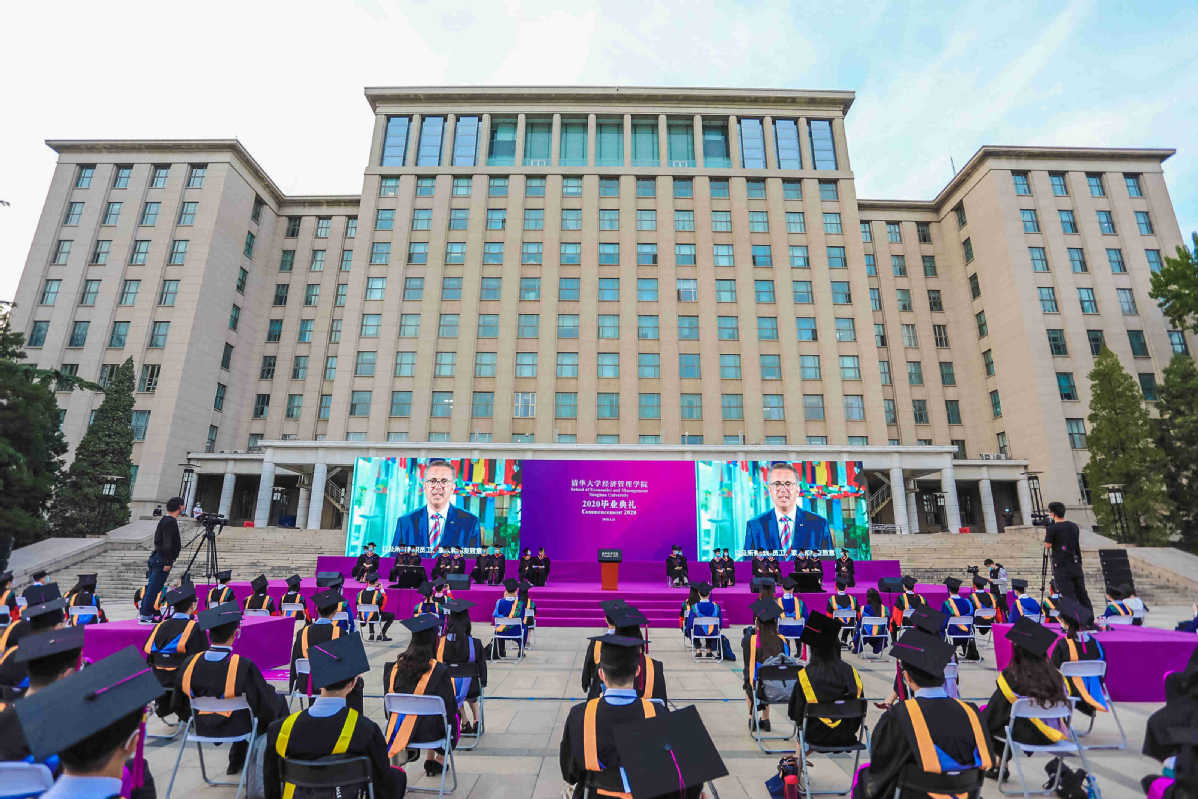WHO head urges Tsinghua graduates to help build healthier world


The world spends trillions of dollars preparing for a terrorist attack, but historically has spent relatively little preparing for the attack of a virus, which as we are now seeing, can be far more deadly and far more damaging economically, politically and socially, Ghebreyesus said.
"All countries have been affected, rich and poor, large and small. The pandemic will shape the world for decades to come – and it will shape your lives and careers too."
Too many countries spend too much of their health budget on managing diseases in hospitals – where the costs are higher and the outcomes are often worse – instead of promoting health and preventing disease at the primary health care level, he said.
Countries spend billions treating lung cancer instead of stopping the scourge of tobacco; treating obesity, diabetes and heart disease instead of promoting healthy diets; treating injuries instead of making roads safer; treating depression instead of promoting mental health, Ghebreyesus said.
He called on countries to make a crucial shift – to focus on promoting and protecting health, rather than only treating disease.
Whatever lessons there are to learn from this pandemic, the greatest failing would be to not learn from them and to leave the world in the same vulnerable state it was before, he said, adding that if there is anything positive to come from this, it must be a healthier, safer, fairer and more resilient world, built on the foundation of equity and solidarity.
"It's reminding us that we are one humanity. We share the same planet, the same DNA, the same hopes, dreams and fears. It's reminding us that none of us are safe until all of us are safe; that a healthier world is a safer world; and that health is not a cost, it's an investment in our common future."


















